Search Results
Showing results 1 to 20 of 30
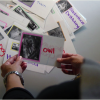
Sound Charades
Source Institutions
In this game, learners create flash cards with an image on one side (of an animal, for example) and the sound that animal makes on the other.
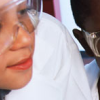
DNA Modeling Activity
Source Institutions
Using pipe cleaners, straws, and beads, learners explore the building blocks of life by creating their own model of DNA.
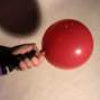
Valves and Pumps: A Demonstration
Source Institutions
This is a demonstration you can use to show learners how valves and pumps work in concert to move blood through the circulatory system.
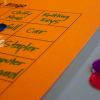
Sound Bingo
Source Institutions
This game is like regular bingo, except the clues are sounds.

DNA Extraction from Wheat Germ
Source Institutions
DNA is the thread of life. Encoded in its genetic sequence is the information that makes each of us unique. This activity allows you to see long, stringy strands of DNA extracted from wheat germ.
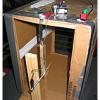
Clap Sensor: Build a Sound Sensor Using a Pico Cricket
Source Institutions
This activity requires a Pico Cricket (tiny computer). Learners work on designing and building a sound sensor out of household materials, like plastic wrap and cardboard.
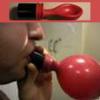
Under Pressure: Your Blood Pressure
Source Institutions
During this lesson, learners will determine their blood pressure and learn about systolic and diastolic pressures.
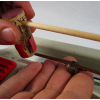
How to Make an Audio Tape Bow
Source Institutions
From this How To slide show, you create an Audio Tape Bow that can play distorted audio sounds by running it across a tape head.
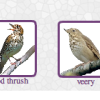
Thrush Songs: An Interactive Game
Source Institutions
In this interactive game, learners listen to the songs of four different thrushes and then try to match each bird with its song.
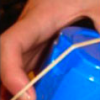
Making Vocal Cords
Source Institutions
In this activity, learners imitate the way vocal cords work by building a model from a plastic cup, rubber band, and a straw.
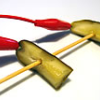
Pickle-oh!: Musical Pickle Instrument
Source Institutions
What's a Pickle-Oh? Two pieces of pickle on a stick are connected to a Pico Cricket (micro controller). When you slide the pickles apart the note changes.
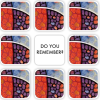
Audio Memory
Source Institutions
In this interactive game, learners will test their memory of animal and insect sounds. Flip over cards, listen to the sound, and try to find the ones that match.
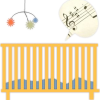
Battle the Baby!
Source Institutions
In this interactive game, learners compare their music-listening skills with that of a three-month-old baby.
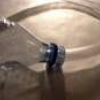
Sounds of the Heart
Source Institutions
In this activity, learners will investigate the sounds of the heart.

DNA Extraction from Cheek Cells
Source Institutions
DNA is the thread of life. Encoded in its genetic sequence is the information that makes each of us unique.
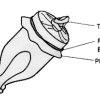
Lung Model: Make a Lung and Diaphragm
Source Institutions
By building a model of a lung and diaphragm, learners discover the function of various parts of the body's respiratory system.
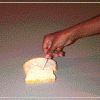
Try Growing Your Own Mold
Source Institutions
This is a hands-on activity that uses bread and household materials to grow mold. Learners collect dust from a room, wipe it on food, and contain it. One to seven days later, mold has grown.
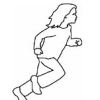
Ins and Outs of Respiration: Determine your Respiratory Rate
Source Institutions
Learners will determine their respiratory rate and explore the factors that affect breathing rate by filling out and using the Respiratory Chart provided in the lesson.
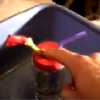
The Heart as a Pump
Source Institutions
Learners will build a homemade pump using a balloon, a mason jar, and some straws.

Circulatory System Skit: Act out the Flow of Blood
Source Institutions
In this activity, learners act out the flow of blood in the human body! A great way to get learners up and moving while learning about the circulatory system.
